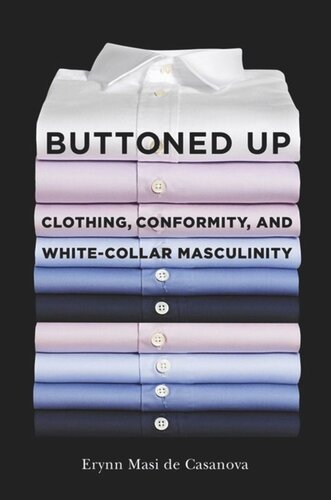

Most ebook files are in PDF format, so you can easily read them using various software such as Foxit Reader or directly on the Google Chrome browser.
Some ebook files are released by publishers in other formats such as .awz, .mobi, .epub, .fb2, etc. You may need to install specific software to read these formats on mobile/PC, such as Calibre.
Please read the tutorial at this link: https://ebookbell.com/faq
We offer FREE conversion to the popular formats you request; however, this may take some time. Therefore, right after payment, please email us, and we will try to provide the service as quickly as possible.
For some exceptional file formats or broken links (if any), please refrain from opening any disputes. Instead, email us first, and we will try to assist within a maximum of 6 hours.
EbookBell Team

4.7
106 reviewsWho is today's white-collar man? The world of work has changed radically since The Man in the Gray Flannel Suit and other mid-twentieth-century investigations of corporate life and identity. Contemporary jobs are more precarious, casual Friday has become an institution, and telecommuting blurs the divide between workplace and home. Gender expectations have changed, too, with men's bodies increasingly exposed in the media and scrutinized in everyday interactions. In Buttoned Up, based on interviews with dozens of men in three U.S. cities with distinct local dress cultures—New York, San Francisco, and Cincinnati—Erynn Masi de Casanova asks what it means to wear the white collar now.Despite the expansion of men’s fashion and grooming practices, the decrease in formal dress codes, and the relaxing of traditional ideas about masculinity, white-collar men feel constrained in their choices about how to embody professionalism. They strategically embrace conformity in clothing as a way of maintaining their gender and class privilege. Across categories of race, sexual orientation and occupation, men talk about "blending in" and "looking the part" as they aim to keep their jobs or pursue better ones. These white-collar workers’ accounts show that greater freedom in work dress codes can, ironically, increase men’s anxiety about getting it wrong and discourage them from experimenting with their dress and appearance.